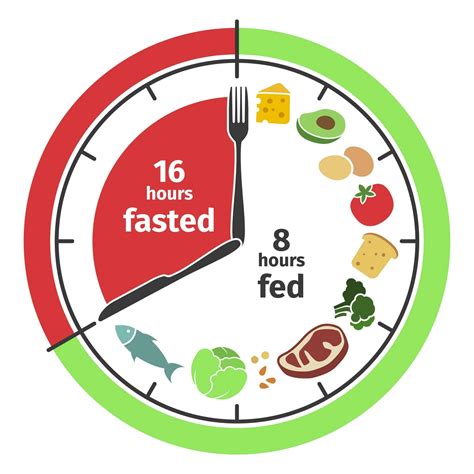Discover the science, benefits, and potential risks of the Ke Diet. Learn how to follow it safely for weight management.
Understanding the Ke Diet
Contents
The Ke Diet is a weight loss program that involves a very low-calorie diet. It is designed to help individuals lose weight quickly by providing a limited intake of carbohydrates, fats, and proteins. The diet involves consuming a special liquid formula that provides all the necessary nutrients while restricting daily caloric intake to around 800 calories.
One of the main principles of the Ke Diet is to induce a state of ketosis in the body. Ketosis is a metabolic state in which the body burns stored fat for fuel instead of carbohydrates. This process is believed to lead to rapid weight loss, as the body becomes more efficient at using fat for energy.
While the Ke Diet may result in quick weight loss, it is essential to understand that such a low-calorie and restrictive diet may not be suitable for everyone. It is important to consult with a healthcare professional before starting any new diet program, especially one as extreme as the Ke Diet.
Furthermore, some potential risks associated with the Ke Diet include nutrient deficiencies, muscle loss, and potential negative effects on metabolism. It is crucial to weigh the benefits and risks of any diet plan carefully before making a commitment.
The Science Behind the Ke Diet
The Science Behind the Ke Diet
The Ke Diet, also known as the Ketogenic Enteral Nutrition diet, is a medically supervised weight loss program that involves consuming a low-calorie, high-fat liquid formula through a feeding tube. This formula provides the body with the necessary nutrients while keeping the carbohydrate intake extremely low. The science behind the Ke Diet lies in the process of achieving a state of ketosis, where the body burns fat for fuel instead of carbohydrates.
When the body is in a state of ketosis, it produces ketones, which are a byproduct of the breakdown of fatty acids in the liver. These ketones then serve as an alternative fuel source for the body and brain. By reducing carbohydrate intake and increasing fat consumption, the body shifts from using glucose as its primary energy source to using fat, leading to weight loss.
The Ke Diet is based on the principles of the ketogenic diet, which has been studied for its potential benefits in weight loss, diabetes management, and overall health. Research has shown that ketosis can lead to appetite suppression, improved insulin sensitivity, and enhanced fat burning. Additionally, some studies have suggested that the ketogenic diet may have neuroprotective and anti-inflammatory effects.
While the science behind the Ke Diet appears promising, it is important to note that this diet should only be followed under the supervision of a healthcare professional. The extreme nature of the Ke Diet and the potential risks associated with it make it important for individuals to consult with their doctor before considering this weight loss method.
Benefits of the Ke Diet
The Ke Diet is a medically supervised weight loss program that involves a very low-calorie diet. One of the main benefits of this diet is rapid weight loss. By consuming a low-calorie, liquid formula for 10 days, individuals can see significant weight loss results. This can be appealing for individuals who are looking to kickstart their weight loss journey or lose weight quickly for a special event.
Another benefit of the Ke Diet is the potential for improved metabolism. The diet can help reset the body’s metabolism, leading to more efficient energy utilization and potentially long-term weight loss maintenance. This can be beneficial for individuals who have struggled with yo-yo dieting or have difficulty maintaining weight loss after initially shedding pounds.
Additionally, the Ke Diet may offer psychological benefits. Many individuals report feeling a sense of accomplishment and renewed motivation after completing the program. This can lead to a positive mindset and increased confidence, which can be crucial for long-term weight management.
Moreover, the Ke Diet may provide health benefits beyond weight loss. Some supporters of the diet claim that it can lead to improved insulin sensitivity and blood sugar control, as well as reduced inflammation. While more research is needed to fully understand the long-term health effects of the diet, these potential benefits are promising for individuals looking to improve their overall health.
Potential Risks of the Ke Diet
The Ke Diet has gained popularity in recent years for its promise of rapid weight loss. However, like any extreme diet, there are potential risks that should be considered before embarking on this regimen.
One potential risk of the Ke Diet is the potential for nutrient deficiencies. The diet involves consuming a very low-calorie intake, which may not provide the essential vitamins and minerals necessary for overall health.
Another potential risk is the effect on metabolism. Severely restricting calorie intake for an extended period of time can slow down the body’s metabolism, making it difficult to maintain weight loss in the long term.
There is also the risk of muscle loss. The Ke Diet involves consuming a primarily protein-based solution, which may result in the breakdown of muscle tissue for energy. This can lead to weakness and fatigue.
Finally, the extreme nature of the Ke Diet may have negative effects on mental and emotional well-being. The strict requirements and rapid weight loss may contribute to feelings of deprivation, anxiety, and even potentially lead to disordered eating habits.
How to Safely Follow the Ke Diet
The Ke Diet is a short-term weight loss program that involves a feeding tube and a very low-calorie liquid diet. To safely follow the Ke Diet, it is important to consult with a healthcare professional before starting the program. They can assess your overall health and provide guidance on whether the Ke Diet is the right option for you.
When following the Ke Diet, it is crucial to closely monitor your body’s response to the low-calorie liquid diet. You should be aware of any potential side effects and seek medical attention if necessary. It is also important to stay properly hydrated and ensure that you are getting all the necessary nutrients to support your body during the program.
Additionally, it is essential to follow the guidelines and recommendations provided by the healthcare professional overseeing your Ke Diet journey. This includes adhering to the designated timeframe for the program and being mindful of any restrictions or limitations that may apply to your specific health conditions.
As with any weight loss program, it is important to prioritize your overall well-being and listen to your body throughout the process. If at any point you feel unwell or experience concerning symptoms, it is crucial to seek medical attention and reevaluate your approach to the Ke Diet.
Ultimately, safely following the Ke Diet requires careful consideration, thorough medical evaluation, and ongoing support from healthcare professionals. By prioritizing your health and well-being, you can navigate the Ke Diet with caution and take the necessary steps to ensure a safe and beneficial experience.












